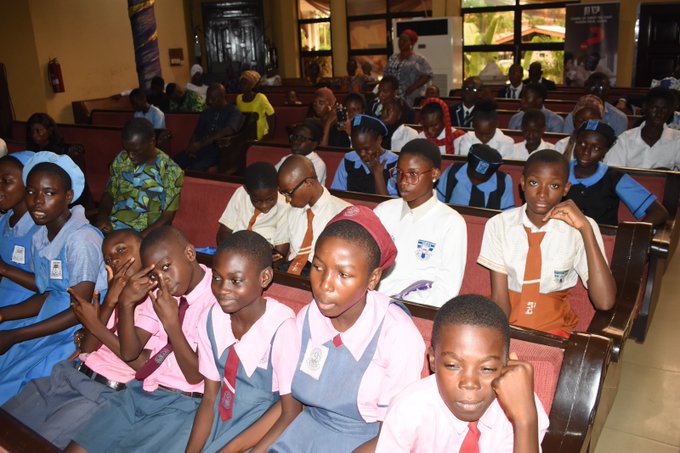The Chinese language, also known as Mandarin, has officially been added to Nigeria’s senior secondary school curriculum, following a recent review by education authorities.
This major development was announced on Tuesday by the Secretary for Education in the Federal Capital Territory (FCT), Dr. Danlami Hayyo, during the commissioning of the 14th “Chinese Corner” at Government Secondary School, Tudun Wada, Abuja.
The inclusion of Mandarin means it will now be taught as an international language option to senior secondary students across the country, alongside existing foreign languages like French and Arabic.
Dr. Hayyo praised the foresight of the FCT in introducing Chinese language education early through the establishment of Chinese Corners in public schools.
“May I inform you that in the recent review of our curriculum, the Chinese language has been selected as one of the international languages to be offered in senior secondary schools,” he said.
He added that the FCT had shown leadership in this area by adopting the language in its schools years before the national curriculum was updated. “The FCT has been very visionary in introducing the subject in our schools through the Chinese Corners early enough,” Hayyo noted.
According to him, the global rise of Mandarin makes this move timely and relevant.
“Chinese Mandarin has the largest number of speakers in the world, and today it has become the language of commerce, education, and tourism. Our decision to delve into Chinese education and culture is a wise move,” he said.
The “Chinese Corners” are educational and cultural centres established across FCT secondary schools, supported by China Civil Engineering Construction Corporation (CCECC) as part of its corporate social responsibility. The centres provide students with basic knowledge of Mandarin and Chinese culture.
With the commissioning of the 14th centre in Tudun Wada, the FCT now hosts the only Chinese Corners within Nigerian public schools.
“The bilateral relations have led to the establishment of 13 Chinese Corners, and the commissioning of the 14th Corner at GSS Tudun Wada today,” Dr. Hayyo stated. “These centres have greatly enhanced education and cultural exchange between Nigeria and China.”
He also noted that the initiative has not only benefited students but also teachers, with several having the opportunity to attend training and capacity-building programs in China.
“Today we are proud to say that it is only the FCT that has Chinese Corners in its schools in the whole federation,” he said.
Dr. Hayyo, who represented the Minister of the FCT, Nyesom Wike, expressed appreciation to the Chinese government and its embassy in Nigeria for their continued support in strengthening educational and cultural ties between the two countries.
He concluded his speech with a Chinese proverb: “Hai nei cun zhiji, tianya ruo bi lin,” which means, “A bosom friend brings distant lands near.”
Also speaking at the event, the Counsellor at the Chinese Embassy in Nigeria, Mr. Yang Jianxing, said the Chinese Corners reflect China’s growing friendship and collaboration with Nigeria, especially in the education sector.
“We are proud to support the development of Chinese Corners in Nigeria, as they serve as a platform for cultural exchange and mutual understanding,” Jianxing said.
He highlighted that China sees Nigeria as a strategic partner in Africa, and investing in education is one of the ways the country is contributing to Nigeria’s development.
The decision to include Mandarin in Nigeria’s national curriculum comes at a time when the relationship between both countries is deepening in areas such as infrastructure, trade, and education. China has been a key partner in many infrastructure projects across Nigeria, including railways, airports, and roads.
The Nigerian government has, in recent years, sought to broaden students’ global perspectives by offering more foreign language options. With Mandarin now part of the curriculum, students will have better access to one of the world’s most spoken and economically influential languages.

